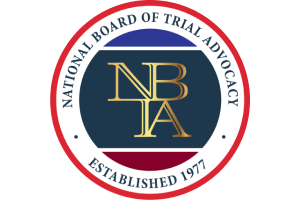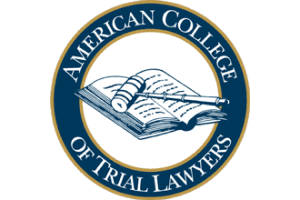Who Get Results
Medical Malpractice
At Robinson Mahoney PLLC, we understand the damage that can be caused when medical errors occur. We trust our doctors to heal us, not harm us. So, when a mistake is made there can be a physical injury or death but there is an emotional injury as well.
Simply because there is a bad outcome, does not mean that a doctor made an error. As Fairfield Medical Malpractice Lawyers, we know that medicine is not an exact science. Therefore, the Connecticut legislature created a screening process that must be followed before a claim for medical malpractice can be filed. We know that Connecticut General Statutes Section 52-190a requires Fairfield County Medical Malpractice Lawyers to include with the lawsuit a written opinion letter of a similar health care provider that there appears to be evidence of medical negligence and includes a detailed basis for that opinion. This requirement helps doctors avoid frivolous claims but also presents an additional hurdle for victims of medical malpractice.
When you retain us as your Fairfield Medical Malpractice Lawyers, we know that the first thing we must do is identify how long you have to file the claim. Connecticut law generally states that a person must bring the claim within two years from the date the injury is first sustained or discovered, except that it cannot be brought more than three years from the date of the error. This is referred to as a statute of limitations. There are some parts of the statute and caselaw that might change the period to file a claim which is why discussion and evaluation of the applicable statute of limitations should always be a priority. There also is a mechanism to file a petition with the court to request an automatic extension of time of 90 days beyond the applicable statute of limitations.
There are three elements that must be proven under Connecticut law for a medical malpractice claim to be successful. First, we must prove what the standard of care is for the treatment you received. Secondly, we must show that your health care provider deviated from that standard of care. Lastly, we must establish a causal connection between that deviation and the claimed injury.
At Robinson Mahoney, we seek to hold others responsible in addition to the doctor that caused your injury or the death of your loved one. Connecticut law states that when a principal acts through its agents, the principal can be held responsible for the mistakes of the agent. Therefore, we identify others that are accountable to you in addition to the doctor – such as a hospital or medical practice.
When the medical malpractice results in the death of the patient, the claim is brought by the estate of the deceased. If the person had a will at the time of their death, the claim is brought by the Executor of the Estate. If the person died without a will, the claim is brought by an Administrator of the Estate who is appointed by the probate court. The Administrator is frequently a family member of the deceased. To recover for the death, under Connecticut law, we must prove that but for the negligence of the doctor, the patient had a greater than 50% chance of survival.
A typical claim in a medical malpractice case is lack of informed consent. To be successful under Connecticut law we must prove that the doctor failed to tell you about a material risk of the procedure or failed to advise you of reasonable alternatives. However, the question is not whether you would have chosen a different course of treatment had you known. Rather, we must prove that a reasonably prudent person in your position would have chosen a different course.
We stand as the leading medical malpractice lawyer of choice for clients in Fairfield, Westport, Bridgeport, Easton, Trumbull, CT, and the surrounding communities. Our medical malpractice attorneys fight to hold your doctor accountable. We understand medicine cannot guarantee a perfect outcome, but patients have the right to expect their doctors to follow the applicable standards of care. Contact us today to request a free consultation on your medical malpractice case.













